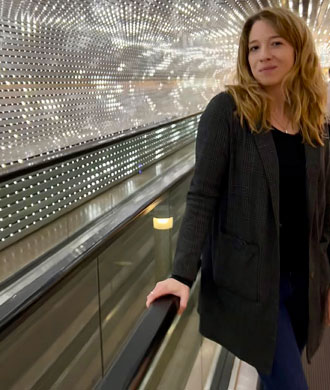
Olivia H. Cox received a BS in Psychology from the University of Maryland, College Park, where she worked in the lab of Cynthia Moss, studying sensorimotor integration in echolocating bats. She then worked as a research assistant in the lab of Richard S. Lee at Johns Hopkins, where she studied the impact of stress on the epigenome to elucidate epigenetic mechanisms that contribute to neuropsychiatric diseases. She received her PhD from Vanderbilt University, where she worked in the lab of Douglas G. McMahon, studying molecular mechanisms underlying circadian clock adaptations to a changing external environment.
She is currently a postdoctoral fellow in the BRAVE2 Lab, where she aims to combine her expertise in circadian rhythms, epigenetics and neuroendocrinology/stress to determine which epigenetic mechanisms may contribute to the neuroprotective effects of early-life exercise. She is particularly interested in how time-of-day, developmental window, and stress may impact the neuroprotective effects of early-life exercise on the epigenome. She employs cellular & molecular neuroscience approaches such as epigenetic editing to address these questions.
